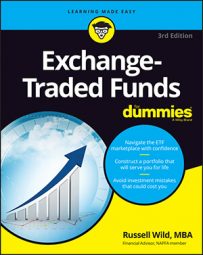Of course, purchasing ETFs leads to the technical questions about which exchange the ETF calls home and which account should house it. Here are the answers to those questions:
Does it matter which exchange your ETF is traded on?
No. Most ETFs are traded on the NYSE Arca (Archipelago) exchange, but plenty of others are traded on the NASDAQ. It doesn’t matter in the slightest to you, the individual investor. The cost of your trade is determined by the brokerage house you use.
The spread (the difference between the price a buyer pays and the price the seller receives) is determined in large part by the share volume of the ETF being traded. Regardless of the exchange, if the volume is small (such as would be the case for, say, the Global X Nigeria ETF), you may want to place a limit order rather than a market order.
Where should you store ETFs: IRA or taxable account?
Generally, investments that generate income — whether interest, dividends, or capital gains — are best kept in a tax-advantaged retirement account, such as your IRA or 401(k) plan. That would include any bond, REIT, or high-dividend paying ETF. You’ll eventually need to pay income tax on any money you withdraw from those accounts, but it is generally better to pay later than sooner.
In the case of a Roth IRA, which is often the best case of all, you will never have to pay taxes on the earnings, the principal, what is in the account, or what you withdraw. Try to put your ETFs that have the greatest potential for growth — REIT ETFs are great candidates — into your Roth IRA.
Because retirement accounts generally penalize you if you take money out before age 59 ½, anyone younger than that would want to keep all emergency money in a non-retirement account.

